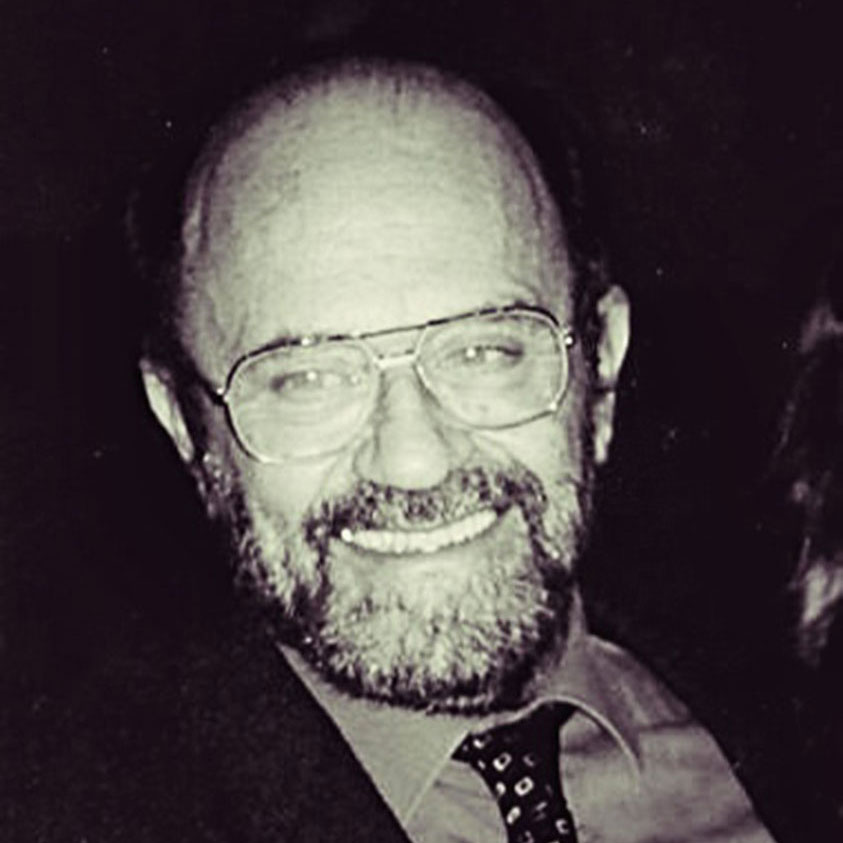Gianfranco Cecchin

Noi parlavamo sempre di famiglie, gli allievi parlavano dei terapeuti, per cui siamo stati costretti a osservare i nostri comportamenti.
Pubblicazioni
- Luigi Boscolo, Gianfranco Cecchin, Lynn Hoffmann, Peggy Penn (1987), “Milan systemic family therapy. Conversations in Theory and ractice“. Basic Books, N.Y.. Trad. it: “Clinica Sistemica”, a cura di Paolo Bertrando. Bollati Boringhieri 2004.
- Luigi Boscolo e Gianfranco Cecchin (1988), “Il problema della diagnosi dal punto di vista sistemico”. Psicobiettivo, 3/1988
- Gianfranco Cecchin, Gerry Lane, Wendel A. Ray (1992), The cybernetics of prejudices in the practice of psycotherapy– Karnac books ltd. London.
- Gianfranco Cecchin, Gerry Lane, Wendel A. Ray (1992), Irreverence. A Strategy for Therapist’s Survival. Karnac Books, London. Trad. it. Irriverenza: Una strategia di sopravvivenza per i terapeuti. Franco Angeli Ed., Milano.
- Gianfranco Cecchin, Gerry Lane, Wendel A. Ray (1997), Verità e pregiudizi. Un approccio sistemico alla psicoterapia– Raffaello Cortina Editore, Milano.
- Gianfranco Cecchin e Tiziano Apolloni (2003), “Idee perfette. Hybris delle prigioni della mente“. Franco Angeli Ed., Milano.
- Gianfranco Cecchin, Pietro Barbetta, Dario Toffanetti (2005), “Who was von Foerster, anyway?”. Kybernetes: The International Journal of Systems & Cybernetics, vol. 34 Nr. 3/4, pp. 330-342.
Gianfranco Cecchin è stato uno psichiatra e psicoterapeuta italiano, fondatore, con Mara Selvini Palazzoli, Luigi Boscolo e Giuliana Prata, del movimento di terapia familiare sistemica oggi noto in gran parte del mondo come “Milan Approach”.
Dopo la laurea in medicina presso l’Università di Padova, si specializza in psichiatria presso l’ospedale “Grasslands” in Westchester county, NY. La sua formazione prosegue con una fellowship in psichiatria infantile presso il centro medico “Hillside” di Long Island, NY. In seguito diviene socio dello staff psichiatrico presso l’ospedale “High Point” a Portchester, NY.
Rientrato alla fine degli anni Sessanta in Italia, apre uno studio privato, e si unisce al team di psicoterapia breve di Mara Selvini Palazzoli, Giuliana Prata e dell’amico Luigi Boscolo. Successivamente alle divergenze maturate con Selvini e Prata, sul piano teorico e sul piano della conduzione delle sedute, con Boscolo fonda la terapia sistemico-relazione, ispirata a Gregory Bateson, oggi nota nel mondo come “Milan Approach ©”.
Nel 1980 nasce il Centro Milanese di Terapia della Famiglia, Le idee qualificanti del suo lavoro sono la curiosità e l’irriverenza. Formula il concetto di curiosità sulla scia dell’insoddisfazione per la “neutralità”, un concetto di derivazione psicoanalitica, mantenuto durante il periodo strategico. Molte delle cose scritte riguardo a Boscolo, valgono anche per Cecchin, si tratta di esperienze condivise.
A partire dagli anni Novanta, mentre Boscolo approfondisce il tema del tempo e, negli ultimi tempi, ritorna a riflettere sulle pratiche psicoanalitiche, attraverso l’arte delle lenti, Cecchin lavora intorno al tema del pregiudizio e dell’irriverenza, che ridefinisce in un modo originale come irriverenza irriverente verso la propria irriverenza.
Successivamente il suo pensiero si mostra vicino al decostruzionismo di Derrida e al postmodernismo di Lyotard. Annoverato spesso nella tradizione del conversazionalismo e dell’approccio narrativo, egli stesso risponde dichiarando la sua irriducibile fiducia nel “pregiudizio” sistemico (anzi, scherzando, usa rivendicare il suo “integralismo sistemico”… per i successivi sei mesi). In effetti i suoi ultimi lavori sono vicini al pensiero di Heinz von Foerster e a un elogio dell’imperfezione.
Gianfranco Cecchin muore il 2 febbraio del 2004 in un incidente automobilistico.Gianfranco Cecchin è stato uno psichiatra e psicoterapeuta italiano, fondatore, con Mara Selvini Palazzoli, Luigi Boscolo e Giuliana Prata, del movimento di terapia familiare sistemica oggi noto in gran parte del mondo come “Milan Approach”.
Storia del Milan Approach



